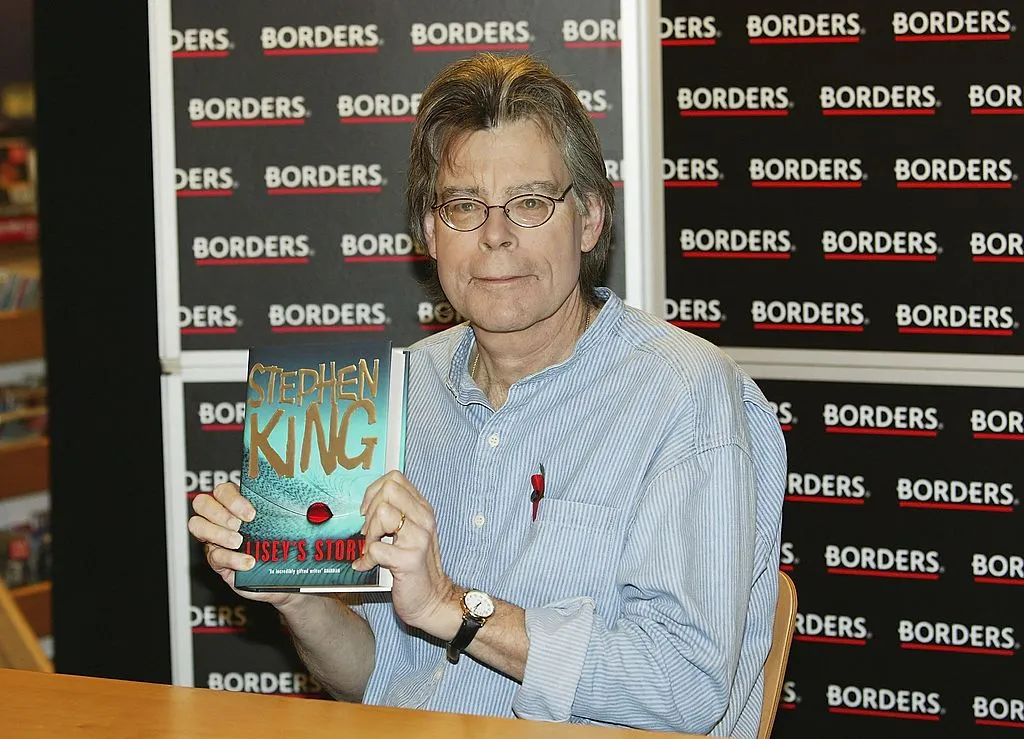
Over the years, Stephen King has undergone a remarkable transformation. From his early formulaic works that easily adapted to Hollywood films to his later forays into more diverse literary territories, King has emerged as a “serious” writer. His cultural stock has risen, elevating him to the status of a writer’s writer with the publication of his 2000 book, “On Writing.” This unique blend of memoir and textbook has positioned him not only on the supermarket racks but also within the pages of prestigious publications like The Paris Review.
A Literary Maverick: Stephen King’s Genre-Defying Stance
Few contemporary writers have challenged the arbitrary division between literary and genre fiction as vehemently as Stephen King. The ongoing debate surrounding his status as a writer sparks word wars among critics, with discussions echoing through platforms like the Los Angeles Review of Books. Regardless of the adjectives hurled his way, King remains undeterred, producing a steady stream of books, refining his craft, and generously sharing his insights. His reading list for aspiring writers, featured as an appendix in “On Writing,” exemplifies his disregard for literary canons.
In King’s eclectic list, best-selling genre writers seamlessly coexist with literary stalwarts. From Nelson DeMille and J.K. Rowling to Charles Dickens and William Faulkner, King’s recommendations span a wide spectrum. The list includes contemporary realist authors like Richard Bausch, John Irving, and Annie Proulx, alongside occasional forays into the postmodern or “difficult” works of Don DeLillo and Cormac McCarthy. This literary medley also incorporates non-fiction works, showcasing King’s diverse reading palette.
Stephen King’s Literary Toolbox: A Glimpse into His Recommended Reads
Prefaced with a disclaimer—“I’m not Oprah, and this isn’t my book club. These are the ones that worked for me, that’s all.”—King’s list offers a glimpse into the books that directly inspired him. As he asserts, each book on the list has left its mark on his own work, making them valuable companions for budding writers. King encourages aspiring writers to explore these titles, suggesting that “a good many of these might show you some new ways of doing your work.” For readers, he promises entertainment, noting that these books certainly entertained him.
Below, we’ve excerpted a selection of twenty books from King’s list that he recommends for aspiring writers:
- Richard Bausch, In the Night Season
- Paul Bowles, The Sheltering Sky
- T. Coraghessan Boyle, The Tortilla Curtain
- Michael Chabon, Werewolves in Their Youth
- Roddy Doyle, The Woman Who Walked into Doors
- Alex Garland, The Beach
- Peter Hoeg, Smilla’s Sense of Snow
- Mary Karr, The Liar’s Club
- Barbara Kingsolver, The Poisonwood Bible
- Jon Krakauer, Into Thin Air
- Norman Maclean, A River Runs Through It and Other Stories
- Frank McCourt, Angela’s Ashes
- Ian McEwan, The Cement Garden
- Larry McMurtry, Dead Man’s Walk
- Joyce Carol Oates, Zombie
- Tim O’Brien, In the Lake of the Woods
- Michael Ondaatje, The English Patient
- Richard Russo, Mohawk
- Vikram Seth, A Suitable Boy
- Anne Tyler, A Patchwork Planet

Upgrade Your Residency: Discover the Benefits of Coliving for a Fresh Living Experience with Zolostay!
Bridging the Gap: Literary and Commercial Success
Much like Stephen King’s own diverse body of work, the recommended books showcase a spectrum rather than a chasm between literary and commercial success. Many of these authors have not only garnered critical acclaim but also found success with screen adaptations and prominent displays in bookstores.










